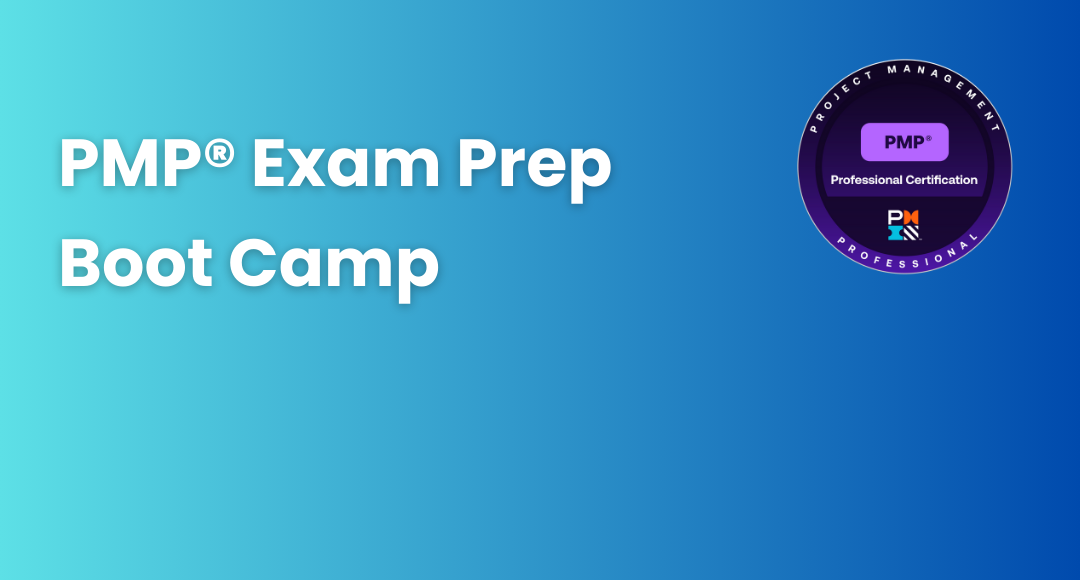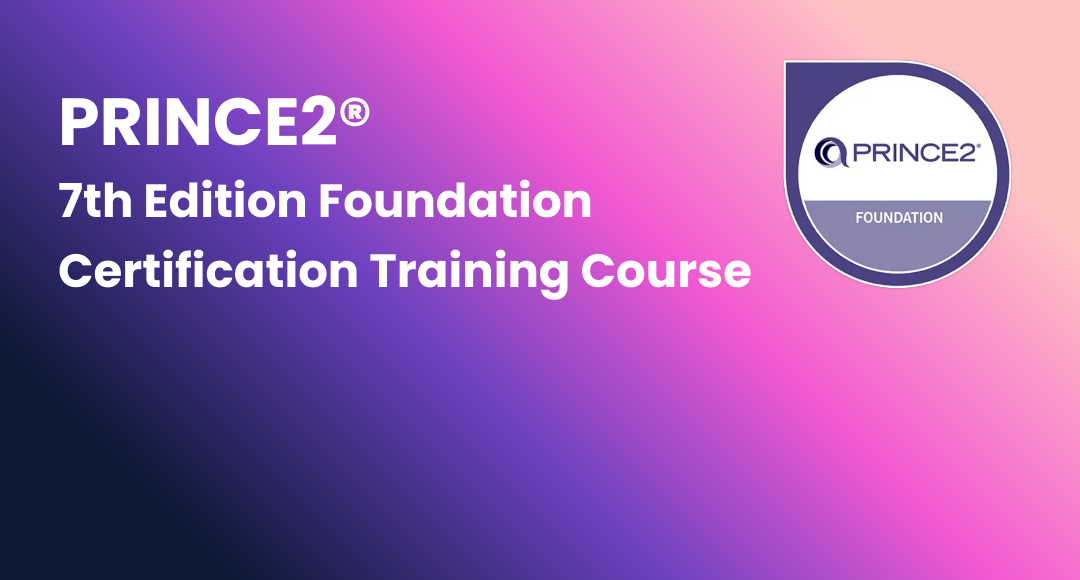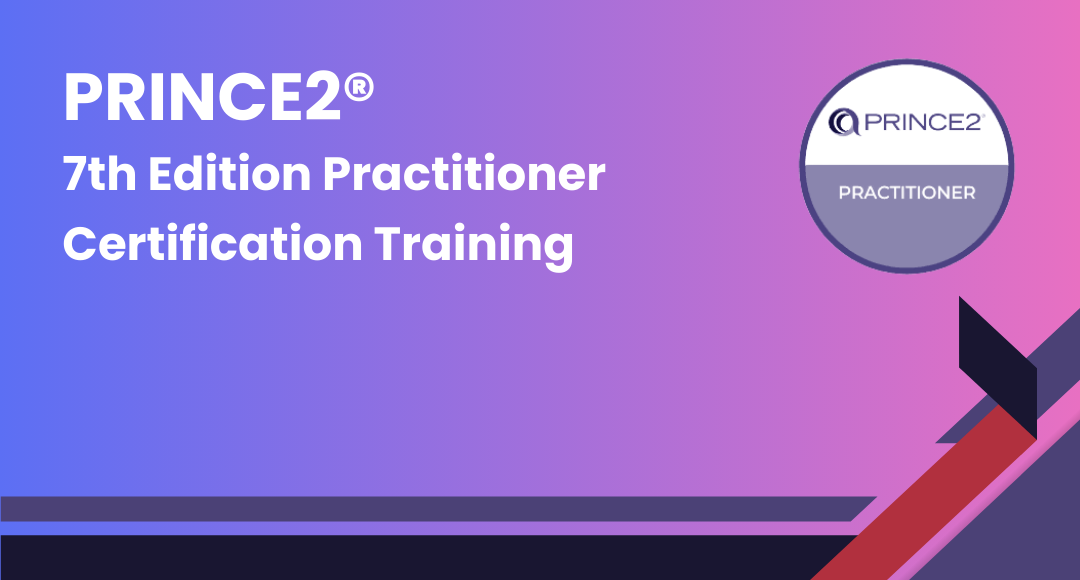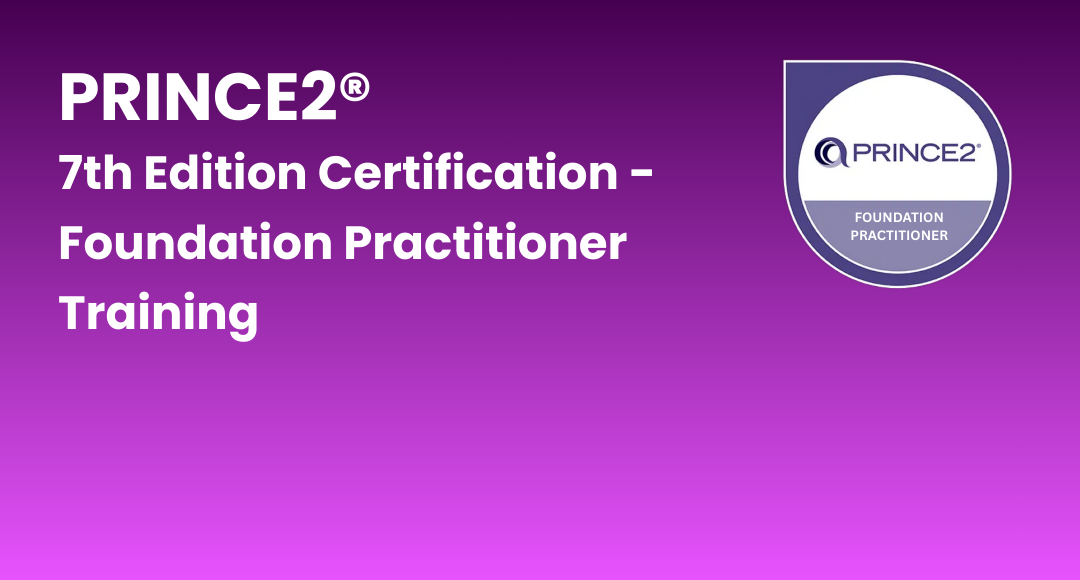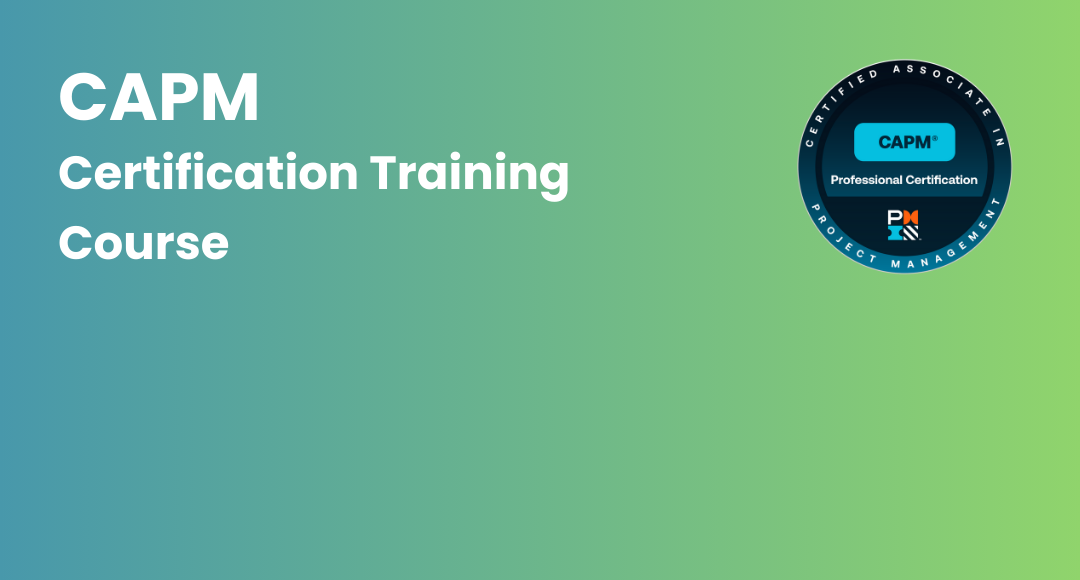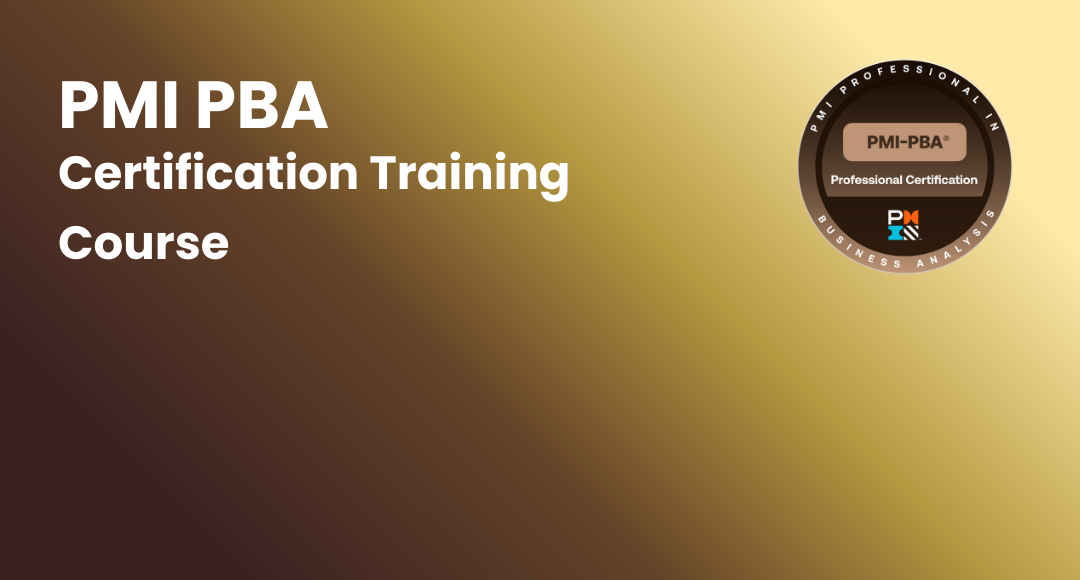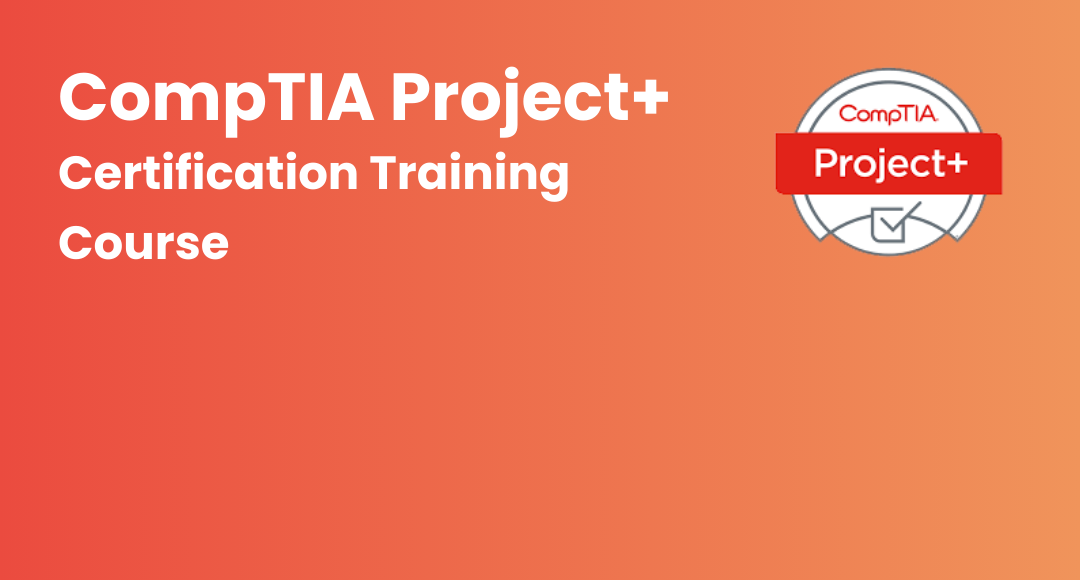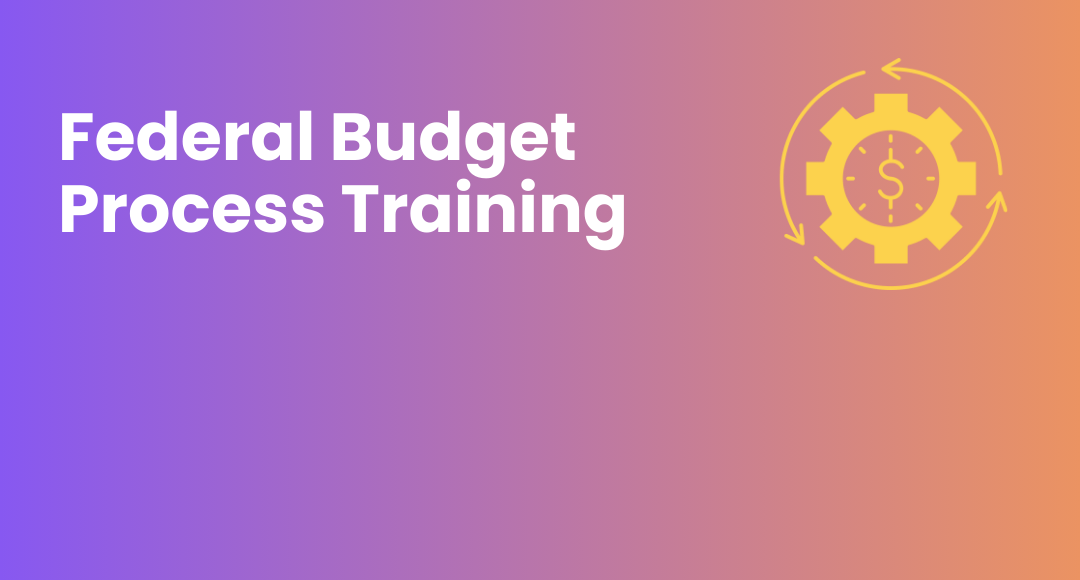Project Management Knowledge Areas
-
 By Jagadish Jaganathan
By Jagadish Jaganathan
- Published on Jun 16 2023

Table of Contents
- Introduction to Project Management Knowledge Areas
- Project Integration Management
- Project Scope Management
- Project Time Management
- Project Cost Management
- Project Quality Management
- Project Resource Management
- Project Communication Management
- Project Risk Management
- Project Procurement Management
- Project Stakeholder Management
- Conclusion
Introduction to Project Management Knowledge Areas
Legendary American football coach Vince Lombardi once said, ‘Leaders aren’t born, they are made.’ And the saying couldn’t be truer. Project Managers are essentially leaders who lead a team and provide the necessary resources to accomplish a goal. Well, leading a team has never been an easy task, be it a kindergarten soccer team or a team of top scientists working on a space project. Thanks to the origin of project management concepts and studies in the previous century, now we have access to so many resources on all aspects of project management.
Project Management Institute (PMI) is a prestigious and one of the most widely recognized governing bodies in the study of project management. A Guide to the Project Management Body of Knowledge (PMBOK ® GUIDE) is a publication of PMI, which serves as a fundamental resource for project management in any industry.
PMBOK is an essential textbook for anyone looking to get a PMI certification and it can also greatly benefit you if you want to learn about project management principles. The emerging technologies, rapid market changes, and new approaches have been pushing professions to evolve and project management is not immune to change. PMBOK in its seventh edition has incorporated all the developmental changes that intend to meet the changing requirements of project management while keeping intact the core principles.

The Project Management Knowledge Areas are some of the essential components of project management offered by PMBOK. There are 10 project management knowledge areas one needs to be acquainted with to understand project management concepts. They are the frameworks on which the management processes are constructed.
Read more about the PMBOK Guide and Project Management Certification.
And in this blog let us discuss each of the project management knowledge areas in detail.
1) Project Integration Management
2) Project Scope Management
3) Project Schedule Management
4) Project Cost Management
5) Project Quality Management
6) Project Resource Management
7) Project Communications Management
8) Project Risk Management
9) Project Procurement Management
10) Project Stakeholders Management
Project Integration Management
Project Integration, as the name suggests is a broad spectrum under which all the management process for the projects are included and forms a single entity. To understand the essential principles of project integration management, we need to know the different phases of a project.
The initiation phase – is the beginning of the process, wherein an initial report is drafted and the objective, stakeholders, etc. are defined.
The planning phase – is the phase of extensive planning for the project to take place. A project management plan is drafted which includes the communication plan, resource allocation, scope, etc.
Execution phase – here the actual project takes place according to the project management plan.
Monitoring and controlling phase – continuous monitoring of the project is essential to make sure the goal sets are aligned with the final objective and defects and scope creeps are controlled.
Closing phase – this signals the completion of the project, after which the project is handed over to the next team in line or the customer.
Project integration management covers all the project management knowledge areas. It combines all the individual processes and tasks into a single project and establishes a well-defined goal. It focuses more on the big-picture, with its broad scope it can be referred back at every stage of the project.
Project Scope Management
Defining the scope is an important aspect of project management. The scope of a project encompasses the requirement for the project, the goals, and its missions. In real life, the stakeholder’s needs and requirements will keep changing as the project progresses. Hence scope creeps are common occurrences in projects.

Project scope management defines the amount of work that needs to be done to deliver the project. And it will help manage any deviation from the project goals and objectives. Here are some of the things to keep in mind while implementing project scope management,
- Planning the scope
- Collecting the requirements
- Defining the scope
- Creating a Work Breakdown structure
- Validating the scope
- Controlling the scope
Project Time Management
The time frame for each task in a project must be included in the project management plan. Some might overestimate the timeline of the entire project and some might underestimate it. Many things depend on the completion time of the project, as they usually consist of a large number of tasks and different teams or individuals working on them. The team members might also be required to work in different shifts and locations.
Considering all these factors are very important to implement effective time management. Project time management will throw light on which task will be scheduled or prioritized and how the resources will be managed throughout the project. This will help avoid unnecessary crashes and delays. Effective project time management will ensure that all the processes are synchronized and do not interfere with using the resources and follow the specified sequence for completion.
Here are some of the benefits of having project time management,
Project time management will help reduce the stress associated with working on deadlines.
Since all the activities are pre-planned along with their timelines. There will be no need for new approvals or meetings, hence will result in increased productivity.
Sticking to the deadline of individual tasks will help finish the project on time.
Since planning each task will save a lot of time for ad-hoc requirements and tasks. It saves money.
Project Cost Management
Project cost management provides knowledge on the estimation techniques to calculate the total amount required to run the project. Cost efficiency is one of the most desirable aspects of the project management system. No one wants to spend more money than they have to. So keeping the budges low and at a reasonable level is important to get approvals from the stakeholders.
Project cost management is not just estimating the total anticipated budget of the project, it involves continuous monitoring of the ongoing costs of carrying out each task, finding out the outlier, and bringing the budget in control if the quoted figure is treading out of control.
Here are the important steps involved in project cost management,
Cost Management Planning – in this stage a plan is created that determines the methods and procedures for estimating the budgets. It involves planning, managing, expense, and control of project costs.
Cost Estimation – here the cost is estimated for each task involved in the project. Like estimation of labor, equipment, material, etc.
Budget Determining – in this process all the separate budget estimations are integrated into a single budget known as the project budget.
Cost Control – this is the analysis of how the project budget is spent and the status of the budget at any particular stage of the project.
Project Quality Management
The delivery of a project with quality is of utmost importance for any organization. While project quality is determined by a lot of factors, it is mainly influenced by project cost and project timeline. The more money and time is spent the better will the quality of the project. Unfortunately, almost all the projects are carried out with some or the other restriction. Hence this area of knowledge focuses on achieving quality within the range of available resources.
Project quality is achieved over time with the consistency of the process. By understanding the expectations of the stakeholders, and working alongside the team with an achievable timeline and cost-efficient processes, you can deliver a great product every time. The project quality management includes,
Quality Management Planning – this process involves creating a document that contains the specifications of the product to meet the standard of quality.
Quality Management – it consists of the specifications of the quality of the deliverables, which should be regularly monitored.
Quality Control – this process is to make sure that the quality of the deliverables meets the expectation.
Project Resource Management
Time and resources are the two most important aspects to be considered in a project. Efficiently managing these two will lighten half of the burden of a project manager. There is no use in having a huge amount of resources if there is no skilled person to work with them. So project resource management focuses on finding the right people with the right amount of skillset to work on the project.
The role of project managers is not just scheduling resources for a set of employees, they are responsible for the growth of their team members, bridging the knowledge gap they might face in a project, and creating opportunities for their team to better utilize their skills.
Here are some of the main functions of project resource management,
Resource management planning involves a document that defines all the resource requirements of a project. For the most part, this plan involves managing human resources. It analysis the project team’s roles, responsibilities, and ability to perform the tasks involved in the project.
Activity resource estimation is carried out to make sure all the resources to carry out the project are identified and the cost is estimated for the resources.
Resource acquisition is about acquiring the resources for the project.
Team development is creating a team of skilled and qualified individuals and giving necessary training if there are any special requirements. Interaction among the team members is important to building a good team.
Team management is monitoring and managing the team so that the member carry out their roles efficiently and deliver a quality product.
Resource control is carried out by monitoring how the resources are utilized at every stage of the project.
Project Communication Management
Communication is the key aspect of running a successful project. The project requires a vast amount of communication with different modes, schedules, and audiences. The project manager is responsible for managing and controlling the communication flow, and it is important not to cause information overload. And there are the important functions a project manager should perform,
Communication management planning: The communication plan should contain the entire communication requirement for a project, its frequency, modes, and audiences.
Communication management: This is the implementation stage of the communication plan.
Communication monitoring: This is monitoring and revising the communication plan to adapt to the changing needs.
Project Risk Management
Every project comes with its risks. And there might also be unforeseen risks from uncontrollable external factors. This knowledge area specializes in providing a mechanism to mitigate the risks and bring the project back on track. While no one can predict everything that can go wrong with a project, having a project risk management system will minimize the damages through constant monitoring and evaluation.
A successful project manager should be able to carry out these risk-management tasks,
- Risk management planning
- Risk Identification
- Qualitative risk analysis
- Quantitative risk analysis
- Risk response planning
- Risk response implementation
- Risk monitoring
Project Procurement Management
Some projects might require resources from a third party or a vendor, even team members might have to be outsourced. And these factors need to be considered while drafting a project management plan and need to be integrated with the in-house activities for smooth functioning.
Working with a third-party, vendor, or outsourcing agency needs to be thought through in terms of budget too. And clear steps outlining the operation need to be done. Here are the main components of project procurement management,
- Procurement Management Planning outlines the project needs and set of parameters to hire specialists.
- Procurement conducting is the process of searching, interviewing, and hiring specialists from outsourced agencies.
- Procurement control is monitoring and managing the contracts and communicating with them regarding the changes in requirements.
Project Stakeholder Management
Stakeholders are the immediate customers to whom the project is delivered. And it is them who decide the success and failure of the project. While everyone interested in the project can be identified as a stakeholder at different stages of the project, the ultimate stakeholder is the one who initiates the project, specifies its needs, regulates the functions, and finally ascertains its success.
Here are the main components of project stakeholder management,
- Stakeholder identification
- Stakeholder engagement planning
- Stakeholder engagement management
- Monitoring the stakeholder engagement.
Conclusion
PMP certification is a globally recognized and internationally accredited project management certification for professionals. And it is aligned with PMBOK® v7, so if you are a professional trying to get a PMP certification, you must be well versed in the concepts in PMBOK.
You should consider PMP Certification Training by Sprintzeal if you want industry-standard training and professional guidance.
Sprintzeal is ATO (Accredited Training Organization) providing quality professional certification training.
Popular Programs
CAPM® Certified Associate Project Management
Live Virtual Training
- 4.3 (962 + Ratings)
- 11k + Learners
Trending Posts
Project Scope Statement: How to Write One With Example
Last updated on Mar 19 2025
Essential Jira Interview Questions for 2026
Last updated on Sep 11 2025
Project Deliverables in Project Management
Last updated on Aug 26 2022
Estimate at Completion - Formulae and Calculations
Last updated on Jun 21 2023
How to get PMP certification - Guide 2026
Last updated on Sep 27 2024
Digital Project Manager – Skills, Salary, and Scope
Last updated on Apr 14 2023
Categories
- Other 77
- Agile Management 48
- Cloud Computing 58
- Project Management 175
- Data Science 70
- Business Management 88
- Digital Marketing 88
- IT Service Management 36
- Programming Language 61
- AI and Machine Learning 94
- IT Security 113
- Quality Management 78
- IT Hardware and Networking 27
- Microsoft Program 5
- Workplace Skill Building 15
- Risk Management 10
- Information Security 8
- Leadership and Management 9
- Corporate Training and Development 1
Trending Now
Issue Log in Project Management - Uses and Importance
ArticleSupply Chain Response And The Factors Involved In It
ArticleBest Agile tools for Project Managers in 2026
ArticlePMI-PMP® Exam Changes Explained in 5 Minutes
ebookProject Initiation Phase - Importance and Roles Involved
ArticleDelphi Technique and Its Role in Project Management
ArticlePMBOK Guide and Project Management Certification Updates 2026
ArticleHow to Use Google Calendar as a Project Management Tool
ebook10 Reasons Why You Should Get PRINCE2 Certification
ArticleCAPM Cheat Sheet 2026
ArticleCAPM Certification Study Guide
ArticleCAPM Certification Exam Preparation Guide 2026
ArticleTop Benefits of CAPM Certifications
ArticleGuide to Advancing Project Management Career with PMP Certification
ArticlePMP Vs PRINCE2 - Which Project Management Certification is Better?
ebookProject Management Interview Questions and Answers for Managers
ArticleProject Management Software to Use in 2026
ebookBest project management certifications in 2026
ArticleProject Feasibility Study in Seven Steps
ArticleCAPM vs PMP – Which Project Management Certification Is Better?
ArticleProject Scope Management Guide 2026
ArticleProject Management Complete Guide 2026
ArticleCAPM Exam – Difficulty, Details and Preparation Tips
ArticleWhat is Project Management?
ArticleIs it worth getting the CAPM certification?
ArticleIs PMP Better than MBA?
ebookWhat is PMI ACP certification?
ArticleIs PMP exam difficult?
ArticleIs PMI ACP worth it?
ArticlePMP or CAPM – which is better?
ArticleWhat is pass percentage for the CAPM exam?
ArticlePMP or PMI ACP – which certification should you get?
ArticlePMP Certification Cost Details
ArticleHow to get PMP certification - Guide 2026
ArticleHow to create an effective project plan
ArticleTop Project Manager Interview Questions and Answers 2026
ArticleGuide to Change Management for Organizational Transformation
ArticleResource Manager Interview Questions and Answers 2026
ArticleTop Project Manager Qualifications and Career Path in 2026
ArticleNetwork Diagram - Types, Topology and Use in Project Management
ArticleProject Management Life Cycle and Its Phases
ArticleGuide to Project Management Processes, Methodologies and Lifecycles
ArticleProcess Capability Analysis Explained
ArticleFinancial Risk and Its Types
ArticleConstruction Project Management - Roles, Stages and Benefits
ArticleRisk Management Strategies in Project Management
ArticleProject Management Principles - 12 Essentials
ArticleProject Management Framework Guide
ArticleStrategic Management Guide 2026
ArticleProject Management Books List - Best of 2026
ArticleProject Documentation and Its Importance
ebookProject Management Tips - Best of 2026
ArticleProject Management Apps Best of 2026
ArticleDigital Project Manager – Skills, Salary, and Scope
ArticleProject Communication Plan – How to Create and Use
ArticleEarned Value Management and Its Significance
ArticlePlanning Poker Estimation Technique
ArticleProject Management vs Product Management
ArticleProject Crashing in Project Management
ArticleProject Controlling and its Importance in Project Management
ArticleProject Report and its Significance in Project Management
ArticleEstimate at Completion - Formulae and Calculations
ArticleProject Cost Management Guide 2026
ArticleProduct Lifecycle Management
ArticleProject Portfolio Management Guide
ArticleProgram Manager vs Project Manager - Comparison of Roles and Careers
ArticleWBS Dictionary - A Beginner's Guide
ArticleStakeholder Analysis and Stakeholder Management Guide
ArticleProject Management Phases Explained
ArticleLeadership Theories for Managers
ebookPMP Pass Rate in 2026 - Guide to Clear the PMP Exam
ebookProject Schedule Management Guide for Beginners
ebookProject Integration Management Guide
ArticleProject Risk Management Guide
ArticleProject Resource Management Guide
ArticleProject Quality Management Guide
ArticleProject Procurement Management Guide
ArticleProject Deliverables in Project Management
ebookConflict Resolution in Project Management
ebookPERT vs CPM in Project Management
ebookGantt Charts - The Ultimate Guide
ebookWork Breakdown Structure in Project Management
ebookTop Gantt Chart Makers in 2026
ebookGantt Chart Tools - Best of 2026
ebookHow to create a work breakdown structure
ebookProject Manager Resume Guide – Best Tips and Examples
ebookProduct Management Frameworks - The Ultimate Guide 2026
ebookProduct Planning - A Beginner's Guide
ebookWhat is Product Management? - A Beginner's Guide
ebookGuide to Project Stakeholder Management
ebookPMP® Certification Salary: Job and Salary Scope in 2026
ebookTop Project Engineer Skills
ebookGuide to Technical Project Management
ebookTop 10 project management competencies
ebookNegotiation in Project Management: The Utimate Guide
ebookTime Management in Project Management - Steps to Implement it
ebookTop Program Manager Skills of Successful Program Managers
ebookA Brief Guide to Conflict Management Approaches
ebookWhat is a Risk Management Plan? A Comprehensive Guide
ebookWorkflow Diagram - Steps to Create, Symbols, Types, and Uses
ebookBest Practices to Measure Resource Utilization
ebookWorkload Management: How to Optimize Your Team’s Workload?
ebookWhat is Project Execution? A Comprehensive Guide
ebookProject vs Program Management: Key Differences
ebookKanban Methodology in Project Management – A Complete Guide
ebookHybrid Project Management Guide 2026
ebookProject Characteristics: Key Elements in a Project
ebookThe Ultimate Guide to the Waterfall Methodology in Project Management
ebookProject Budget: Definition, Overview & How to Create One
ebookThe Ultimate Project Kickoff Meeting Guide
ebookProject Timeline: How to Build One, Definitions, and Examples
ebookProject Scope Statement: How to Write One With Example
ebookStatement of Work in Project Management Guide 2026
ebookProject Management in Product Development : Essential Role
ebook10 Best Change Management Tools to Use
ebookMastering Resource Scheduling to Unlock Project Success
ebookProject Risk Analysis: Tools, Templates & Best Practices
ebookHow to Write a Project Summary: Four Easy Steps
ebookTop Leadership Skills: Mastering the Art of Effective Leadership
ebookHow to Write a Project Descriptions: A Step-by-Step Guide
ebookWhat is Project Monitoring? A Comprehensive Guide
ebookWhat Are Project Fundamentals? A Quick Guide
ebookKanban Board: A Detailed Guide to Understanding and Usage
ebook10 Effective Management Styles for Leaders (With Real-Life Examples)
ebookProduct Manager Career Path: What to Expect
ArticleCareer Path for Program Manager - Strategic Navigation for Professional Growth
ebookExploring Career Path for Product Owner
ebookAn Ultimate Guide to Project Coordinator Career Paths
ebookHow to Become an ISO 21502 Lead Project Manager
ArticleWhat are the Basics of ISO 21502 Foundation? A Brief Guide
ebookThe Role and Responsibilities of an ISO 20400 Lead Manager
ArticleEnergy Saving Standards and ISO 50001 Best Practices
ebookComparing Different ISO Certifications for Project and Energy Management
ebookGuide to ISO Certifications for Effective Project and Energy Management
ArticleWhy ISO 50001 is the Perfect Match for Energy Efficiency?
ArticleAI Tools for Project Managers: A Game Changer for Project Success
ArticleAbout Disney’s Project Management: Where Magic Gets Real
ArticleMcDonald's Recipe to Success - A Perfect Project Management Case Study
ArticleToyota’s Project Management: A Road to Greatness and Innovation
ArticleNetflix's Binge-Worthy Project Management
ebookUnder Armour’s Project Management Approach
ArticleWipro Project Management: Core Lessons from Tech Giant
ArticleProject Management at Google: Tools and Success Stories
ArticleCoca-Cola Project Management Strategy and Key Insights
ArticleAI in Project Management: Transforming the Future of Work
ArticleBehind the Scenes: How Apple Executes Projects with Flawless Precision
ArticleTesla's Advanced Project Management: Accelerating the Future
ArticleBeats to Business: Spotify's Project Management to Redefine Music
ArticleTop AI Project Management Software to Elevate Your Workflow
ArticleProject Management Office: Step-by-Step Guide to Start a PMO
ArticleWhat is a Project Management Information System?
ArticleHow Microsoft Balances Innovation and Project Management?
ArticleWhat is Agile Project Management? A Beginners Guide
ArticleIKEA Project Management: What to Learn and Stay Competitive
ArticleHow Did Nike Become a Global Leader?
ArticleIntel's Master Project Management Formula
ArticleSamsung Pioneer in Project Management: The Secret Behind It
ArticleAmazon Logistics Strategies That Dominate Retail
ArticleRemote Project Management Success: Key Strategies and Career Opportunities
ArticleStreamlining Workflows: The Best Digital Tools for Professionals
ArticleUnderstanding the Financial Risks in Sponsorships and How to Avoid Them
Article3 Real Disasters That Teach Critical Project Risk Planning Lessons
ArticleInterview scheduling automation: Streamlining the candidate experience
Article3 Quality Gaps That Can Ruin Your Project Outcomes
ArticleBest 4 Construction Drawing Management Tools to Boost On-Site Efficiency
ArticleEssential Jira Interview Questions for 2026
ArticleProduct Development Cycles That Keep Innovation on Schedule
ArticleSmarter Projects with AI
ArticleLegal Project Management for PMs: A Practical Starter Guide
ArticleProject Manager Job Description: Roles, Responsibilities, and Skills
ArticleProduct Analyst Job Description – Key Duties and Career Path
Article7 Team Assessment Tools for Project Management
ArticleHow MVP Development Is Transforming Project Management
ArticleWhy AI for Project Management is the Great Reset for Leadership
Article

